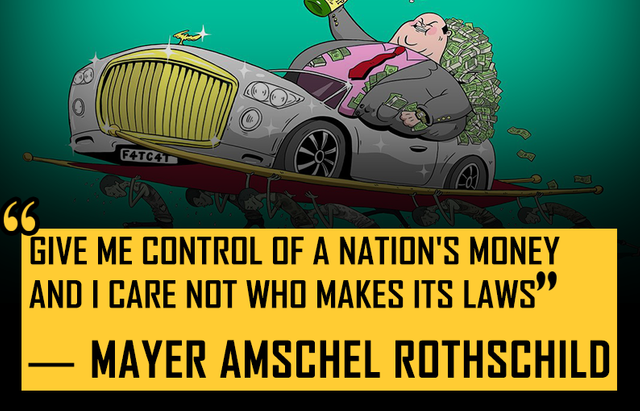Fractional Banking and consuming society

In a world where the basis for growth is materialism and consumption, one could say that today's society is a true reflection of what happens when capitalism is faithfully implemented... but what if it is not?
A materialistic world without a doubt, where programmed obsolescence, large-scale production of goods and abusive marketing practices are a good example of what that human beings have become, that human beings do not always have a long-term vision and are not always responsible to society or to the world they belong to. It is imperative to demand respect among people on a global scale in order to achieve a world where there are no abusive practices due to material incentives such as modern slavery and where the values of environmental protection and the ecosystems we inhabit are encouraged. It seems that the answer to these evils always ends up being the same, Capitalism, but is it really so?

Even so, from an entrepreneur's point of view, we could conclude that he could obtain the same benefit without having to resort to the obsolescence of his product or to mass marketing so that everyone buys an object that is not really necessary for his subsistence. For example, let's imagine that there is an entrepreneur who decides to sell a silver screen television that lasts many years like the televisions of yesteryear, he or she might well be able to charge a little more for his or her product because anyone who buys it will be willing to pay a little more with the knowledge that the product purchased will last many years longer than the competition. Based on this, we see that it is possible that there are companies that are thinking of offering a really long-lasting and quality good that can work for years.

The human being seeks by nature to differentiate himself from the rest and to have a certain idea of superiority, this is an inherent search for improvement, which although not present in everyone, it is very common to see oneself in society. For this reason, the simplest way to demonstrate superiority is not only based on having more developed ideas or a clear intellectual superiority, but also on having physical goods, from a more banal point of view, visible that demonstrate the higher level that the person has reached, thinking that the level of income is a sign of greater intellectual and social capacity. However, this habit has existed since the beginning of time and it has not always been compulsive buying without reason to prove these facts. A person could continue to prove their status by buying an i-phone that lasts 20 years in operation instead of an average of 2 years per device.
So, the general blame should be attributed to capitalism because it encourages this kind of compulsive emotions of the entrepreneur and the consumer. However, there is no intrinsic and direct connection between this approach and what the capitalist system really is. Capitalism is a wealth-creating system that aims to accelerate productivity through free and unregulated trade, this is what we called Free Market. This has nothing to do with the need to produce more and more without any sense against all social logic. it seems to be obvious that it is not the system itself that is to blame, but that the system has been perverted by perverse incentives that come from the immoral thoughts of many people who use the system to impose themselves on others.
There are approaches that advocate individualism such as Ayn Rand's rational selfishness, this is the very ethical concept on which capitalism is based. The personal benefit of a person who serves others by providing them with what they need is not bad, the problem is when you cheat and play with other people's money, money that is not yours and that you have promised to give back. This obligatorily creates a need for short-term profit, making use of any stratagem in order to carry on with the same practice.
Without a doubt, the widespread banking situation of giving more money than one has (banking system and fractional reserve) is what is causing society to fall into consumerist practices and harmful to the economy as a whole. If a bank makes use of the money it receives in deposits (people's savings) to give this money to companies that produce a good, it is forcing the company to make a practice of short-term profitability.

The effect of creating more money than is actually saved is to lower the interest rate; by lowering the interest rate, companies have the incentive to ask for huge amounts of debt to carry out their activity. This debt must be repaid if or if it is not repaid, because if it is not repaid, we risk bankruptcy of the system completely, practically as it happened in 2008 and the controversy of subprime mortgages. This company, which has received the money, understands that with how cheap it is to take out new loans, the most profitable practice is to make products that are consumed quickly so that you can use more debt, grow quickly with the application for another loan and expand your product into the market. I believe that in this case it is clear where the incentive to make use of the planned obsolescence comes from.
Now one might wonder why people fall into this deception and go to consume without thinking, all this because the bank is creating the same incentive in people as in companies, it is easier to take out a low-interest loan than to save to buy a product in the future. And the thinking of ordinary people is that it's much better to travel to Hawaii or buy the latest generation of high-end mobile phones with borrowed money than to travel to a nearby location or buy a mid-low end mobile phone.
The bank has an urgent need to lend money. He is using the money deposited in the bank, money that is not his own, for his own activity. The only way for the bank to make a deposit is to lend the money to someone else and make the depositor believe that the money is being held, otherwise the person would decide to take the money out and keep it under the mattress. The bank is therefore obliged to lend money at its discretion in order to make extraordinary profits on money that is not even close to its own. This borrowed money feeds the use of short-term practices that thus become more profitable than others with long-term prospects and also provides society with cheap money to buy these products and thus continue to fuel the consumerist cycle by making society more and more materialistic.
Posted from my blog with SteemPress : http://blackliberal.vornix.blog/2018/07/03/fractional-banking-and-consuming-society/
upvote for me please? https://steemit.com/news/@bible.com/2sysip